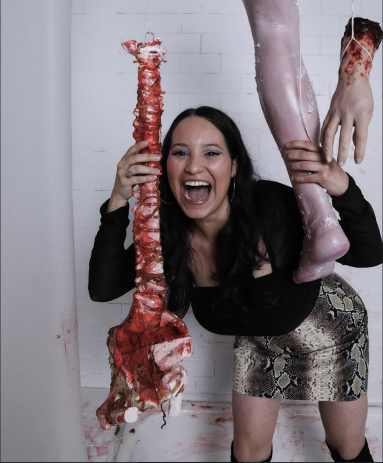40 Horror Movies About Female Rage
“Women always have to put up a f–king fight.” – Revenge (2017)
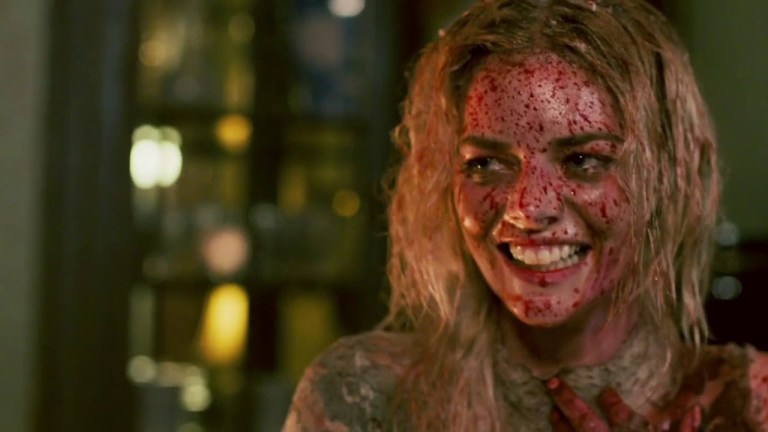
Numerous subgenres and tropes have been created around women in horror, for better or worse. Like everything in horror, slasher movies have evolved, but they got their start thriving off of female suffering, male violence, sexism, the objectification of women, and perpetuating the male gaze. Women have often been tortured in slashers for their sexuality and progressiveness—the assailant killing those who are liberated, while the “pure and virginal” protagonist gets away unscathed. There have been horror films that punish women and paint them as monsters for their trauma. Genuine: The Tragedy of a Vampire (1920), whose character was also punished for her ascendency over men, is an early example.
Hagsploitation, or psycho-biddy films, revolve around aging women who have become violent and mentally unstable. Nunsploitation films are centered around women who have taken their vows and are often sexually repressed. Many lesbian vampire films center around a few harmful stereotypes: the predatory lesbian, the female body as an erotic object, and lesbianism as something to be sexualized by the male gaze. Most rape revenge films exploit women’s pain. “Unhinged women” have been punished and villainized for their neuroses, a subject Kier-la Janisse explores in her spellbinding book House of Psychotic Women by reframing the “unhinged woman” as a threat to patriarchal structures and painting her as an empowering figure in her defiance.
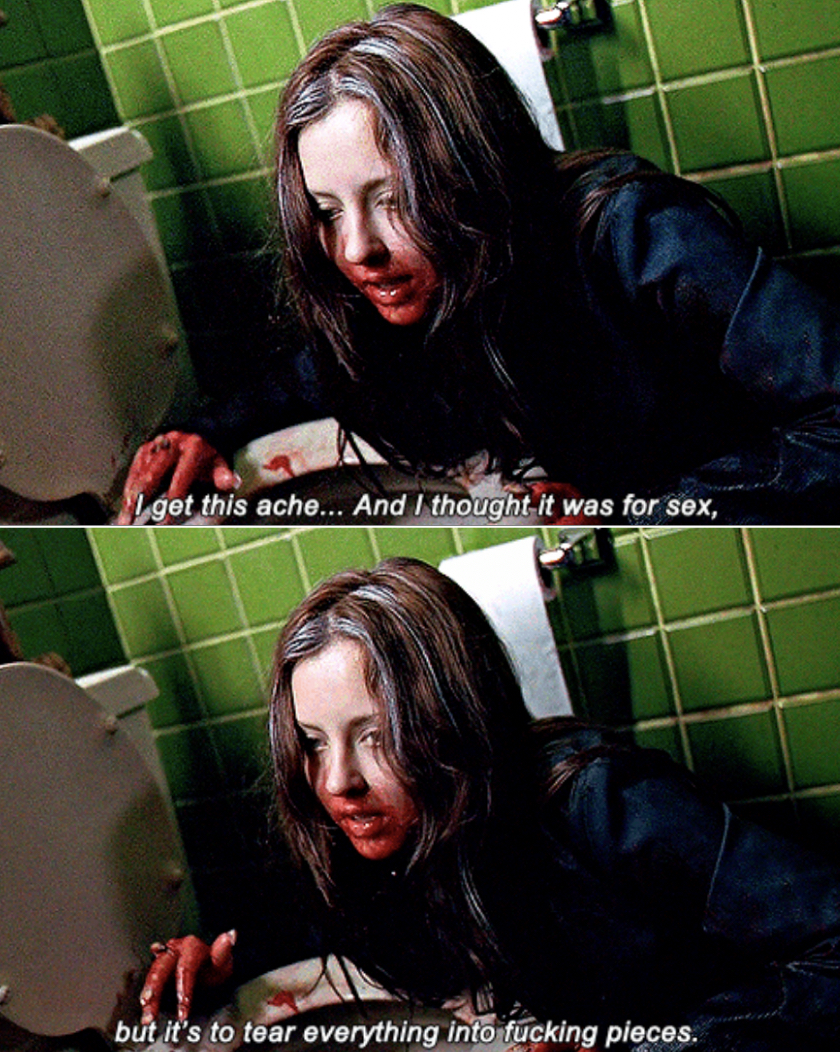
There is no horror without women. Women have been at the very center of horror since the genre’s inception. In its earliest days, women were always typecast as the weaker sex. It started with the damsel in distress trope, a helpless victim who can’t fend for herself and only escapes danger once she’s whisked away by some male protagonist—Kay Lawrence (Julie Adams) in The Creature from the Black Lagoon (1954). Fay Wray played the first scream queen as Ann Darrow in King Kong, a derivative of the damsel in distress. There are final girls aplenty—Sally Hardesty (Marilyn Burns) in The Texas Chainsaw Massacre (1974) and Laurie Strode (Jamie Lee Curtis) in Halloween (1978) being some of the earliest examples. As horror evolved, so did women in the genre. Slowly, the screen started featuring women that embraced their monstrous feminine—women who are unabashedly angry and defy patriarchal society. Women went from being the feminine, dainty victim to someone to be feared—someone with agency and power.
And so, “female rage horror” was born. This niche of films in the genre sends a clear message: do not underestimate what women are capable of. The protagonists in these pictures are usually wronged by society, by men, by life, or by those around her. She is someone who was failed somehow, and subsequently unleashed an unrelenting feminine brutality. She is someone with a bottomless well of anger buried within her, waiting to be let out. She is someone who stands out beyond her trauma as someone courageous and strong. She is someone who finally comes into her own. She is someone who regains her agency and control. She can be both the victim and monster. She gets even. She teaches us that we don’t have to do as society has taught us and bury our rage quietly.
Cataloged below are 40 horror films about female rage.
Genuine: The Tragedy of a Vampire (1920)
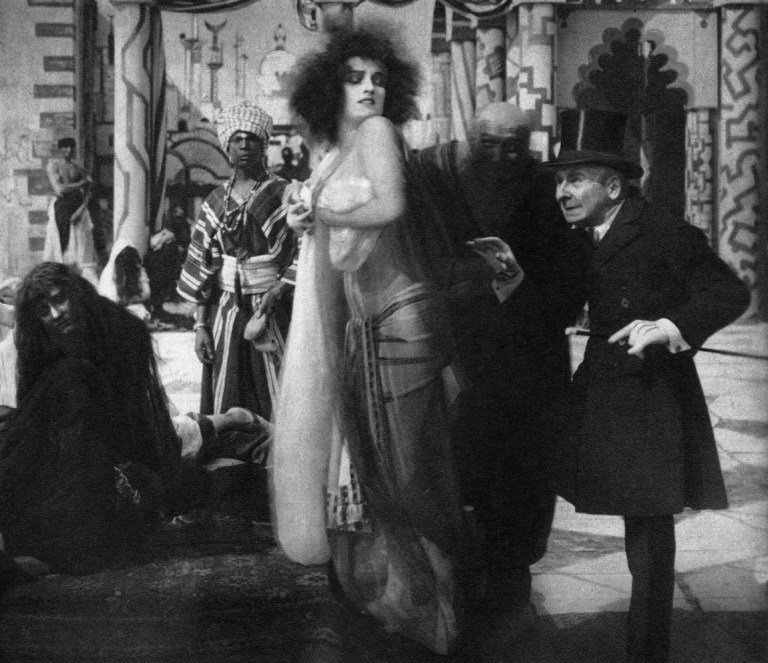
High priestess Genuine (Fern Andra) steps out of a painting and escapes into the world, where she’s forced into slavery. She’s kept in a cage by a rich aristocrat who keeps her dressed in lingerie. The rest of the movie follows her ascension from her underground prison. Renowned expressionist painter César Klein designed the film’s sets, making the Genuine one of the grandest visual phenomena in film history. There’s technically no vampire in this obscure silent German expressionist film, but there is a “succubus.” The film’s only fault is not treating Genuine’s cruelty and vengeance as a justified, understandable response to her trauma and the abuse she’s endured. Instead, this woman who has an incredible power over men is painted as a terrifying monster. The smart viewer knows better, and can’t help but root for her.
The Blood Spattered Bride (1972)
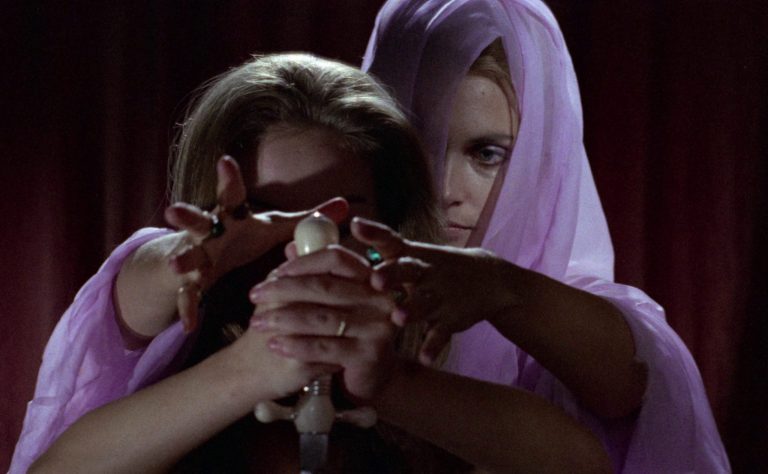
This Spanish lesbian vampire film explores gender roles, oppression under patriarchy, sexual repression, female liberation, and the fragility of the male ego. The bride horror is part gothic and part giallo. It follows newlywed Susan (Maribel Martín), who spends her honeymoon in her husband’s (Simón Andreu) isolated ancestral estate. She can’t help but feel like her new spouse, who’s an obsessive sexual pest for much of the film, has the desire to confine and humiliate her. Susan becomes plagued by dreams featuring a woman who turns out to be Mircala Karstein (Alexandra Bastedo), the wife of one of her husband’s ancestors, who happened to have murdered her groom on their wedding night. Soon, fantasy bleeds into reality. The vampire is the knight in shining armor in this tale.
Alucarda (1977)
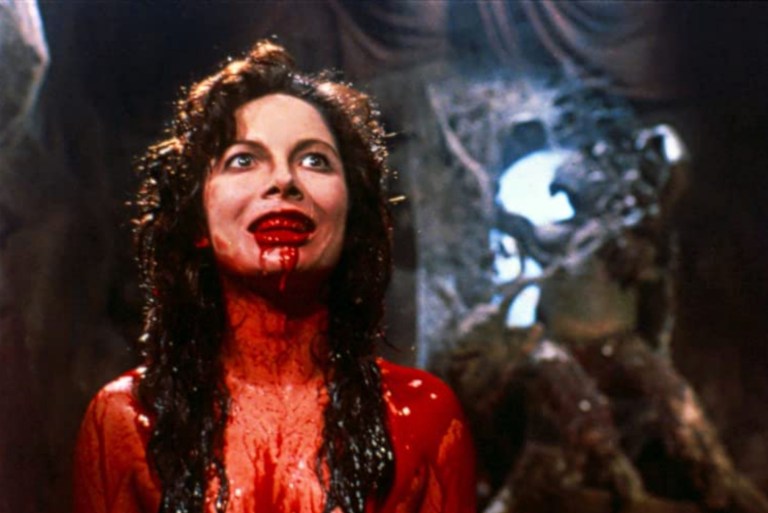
This English-language Mexican horror is a story about two girls who refuse to let patriarchy and the Catholic Church control them. When one is pushed too far, she brings the whole house down, unleashing destruction and the fire of hell. A scathing critique of the corrupt and malicious Catholic Church, Alucarda examines repression and oppression under religion, female empowerment, and modernity vs. tradition. The story is set in 1580 at an isolated convent, where 15-year-old orphan Alucarda (Tina Romero) was raised by nuns. When newly orphaned Justine (Susana Kamini) arrives, the two quickly become captivated by one another. After making a pledge to die together, they unwittingly open a crypt that unleashes a seductive and destructive Satanic force.
Possession (1981)
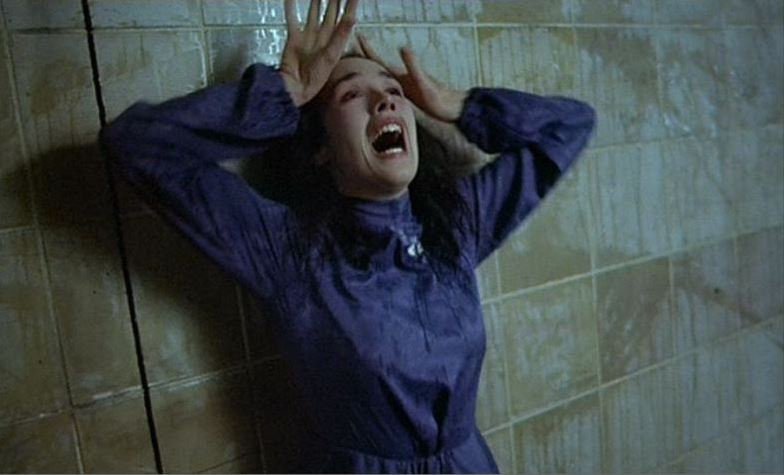
Possession is an allegory for divorce. The anti-romcom horror movie explores the dissolution of relationships, codependency, and how love turns us into monsters. However, it’s about so much more—at its center is a character who has internalized her rage as a woman, a wife, and a mother. The film features one of the most unhinged sequences in cinema—the iconic subway scene that transcends horror itself. Isabelle Adjani is electric as Anna, who asks her husband Mark (Sam Neill) for a divorce, and who begins displaying increasingly erratic behavior after. He hires a P.I. to follow her and becomes obsessed with finding out her reason for leaving him. The movie earned the label of a “video nasty” and was banned for years in the UK.
Audition (1999)
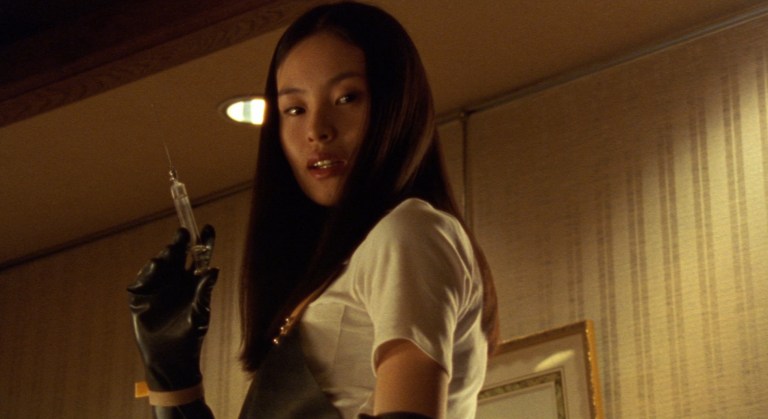
This Japanese psychological horror was directed by horror master Takashi Miike. The story follows widower Shigeharu Aoyama (Ryo Ishibashi), who has recently decided to start dating again after being encouraged by his son. He’s determined to find the “perfect wife” and the ideal mother figure for his son. Aided by his film-producer friend, he hosts auditions for a fake production to interview women for the role. He becomes enamored when he meets Asami (Eihi Shiina), a soft-spoken ballerina, but she isn’t who she portrays to be at all. The film examines the objectification of women, female subservience, misogyny, the systematic abuse of women, and power dynamics.
Ginger Snaps (2000)
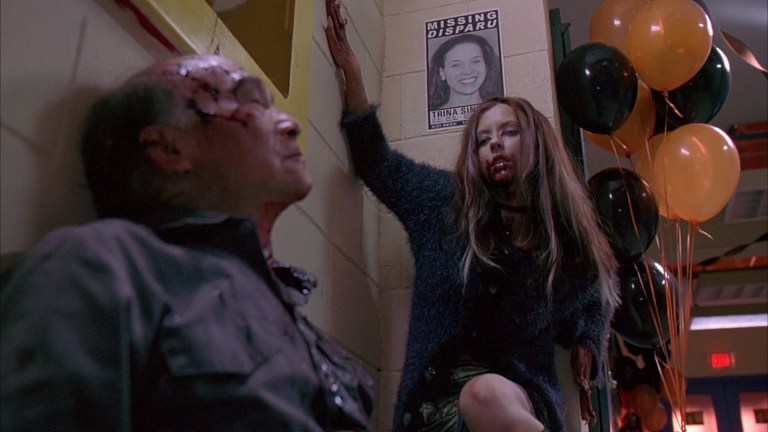
Outcast sisters Ginger (Katharine Isabelle) and Brigitte Fitzgerald (Emily Perkins) spend their time making artsy videos in which they act out their deaths. They’ve made a pact to get out of the mindless town of Bailey Downs or die together by the age of 16. Everything changes when late one night Ginger is attacked by a beast. Her body undergoes a horrifying transformation, which culminates on the Full Moon. Ginger Snaps explores coming-of-age female rage using lycanthropy as a metaphor for the terrors of puberty. The werewolf in this film also represents the monstrous feminine: that which patriarchal society fears the most—women beyond men’s control, the power lurking within them, and the female body itself. Ginger cannot be confined or contained, she seeks autonomy and power, she refuses to be dominated by a misogynist or abide by social norms, therefore she’s dangerous and deadly.
Teeth (2007)
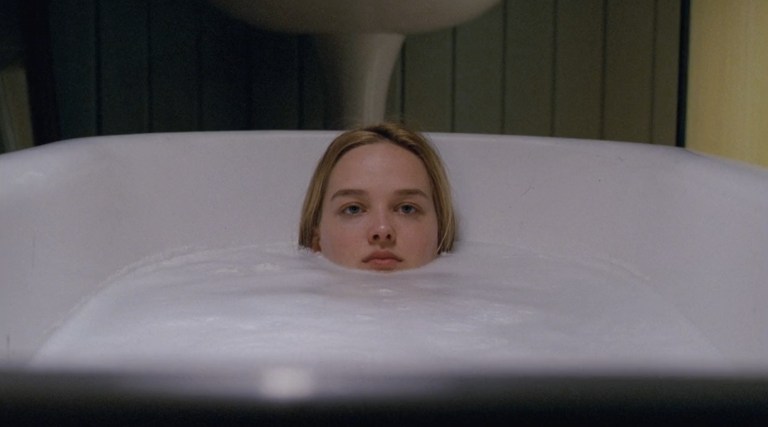
“The toothed vagina appears in the mythology of many and diverse cultures all over the world. In these myths, the story is always the same. The hero must do battle with the woman, the toothed creature, and break her power.” Dawn (Jess Weixler) is a straight-laced girl and member of her high school chastity club. When she meets a new student, Tobey (Hale Appleman), she starts struggling with her burgeoning sexuality and desires. She explores a little with making out, which is a huge deal for her. She wishes to go no further, but he doesn’t respect her wishes and violates her consent when she asks him to stop. During the rape, she discovers a physical advantage against those who’d try to hurt her. Ahead of its time, Teeth was a refreshing subversion of how women’s bodies are usually treated in rape revenge movies.
Jennifer’s Body (2009)
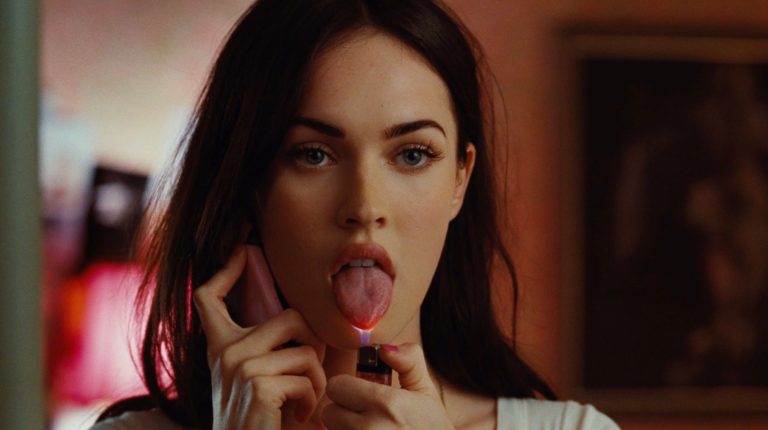
High school cheerleader Jennifer Check (Megan Fox) suffers a horrific event, after which she’s transformed into a succubus whose survival depends on the flesh of teenage boys. Her best friend Needy (Amanda Seyfried) struggles with her love for Jennifer and knowing that it’s up to her alone to put a stop to her carnage. The cult classic depicts how women are sexualized, objectified, dehumanized, and used by men. At its core, it’s a story about a young girl who endured unspeakable trauma when her body was utilized for the benefit of men without her consent. Jennifer didn’t deserve what she endured in her girlhood, nor did she deserve the end she was given in the movie. In fans’ wildest dreams, Needy would understand that Jennifer was only regaining her agency and the control of her own body—she’d support her bestie (and maybe help her hunt the worst of men).
American Mary (2012)
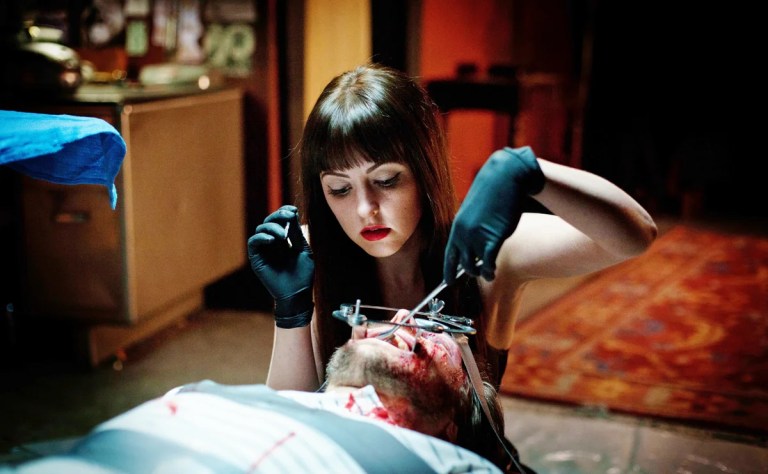
Weird girl horror American Mary stars the talented and genre fave Katharine Isabelle as Mary, a promising young surgical student. Pushed by financial pressures, she enters the underground world of extreme body modification, soon making a name for herself. After one of her medical school professors assaults her, she quits her residency and dedicates herself full-time to body-mod surgery. She gets revenge on her abuser, but as Mary attempts to regain her control and power, she pushes the limits and unravels further and further. The feminist body horror was written and directed by the Soska sisters, Jen and Sylvia. It makes strong commentary on the objectification of women, male violence, and the existence of women in a world controlled by men.
The Love Witch (2016)
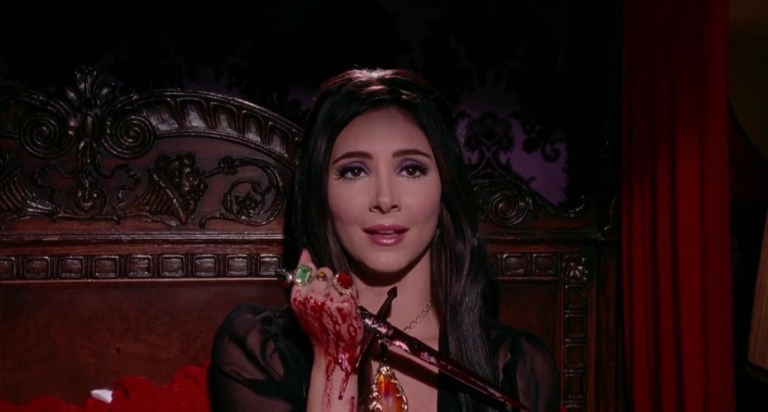
Elaine (Samantha Robinson) is fixated on finding a man to love her. In her quest, she conjures up spells that work too well, but come with deadly consequences. There’s more to Elaine than meets the eyes. On the surface, she’s a lovesick woman, but her femininity and unrealistic fantasies ingrained in gender roles are a front for something else. Elaine is a complex character who carries a rage deep inside because of the trauma and abuse she has suffered at the hands of men. She found power again in witchcraft, and she’s driven by a desire to take back her agency and control by robbing men of theirs.
Revenge (2017)

Revenge’s premise is deceptively simple: Jennifer (Matilda Lutz) goes on a romantic getaway at a nice, secluded desert home with her married lover Richard (Kevin Janssens). His friends end up arriving early for a hunting trip, so he’s forced to introduce them. While Richard is momentarily away the next day, one of them rapes her, while the other does nothing to stop it. When her boyfriend returns, he offers her a bribe to cover it up, and becomes enraged when she refuses. A chase ensues, and Richard tries to kill her by pushing her off a cliff. Jennifer survives, and the rest of the movie follows her as she hunts the three pigs down. She’s a beautiful, sexy woman whom they clearly underestimated, because she’s got a lot of fight in her. The hunters become the hunted in this one. The movie exceeds expectations and subverts tropes usually seen in rape revenge subgenre, condemning toxic masculinity, the male gaze, the objectification of women, and rape culture.
Ready or Not (2019)
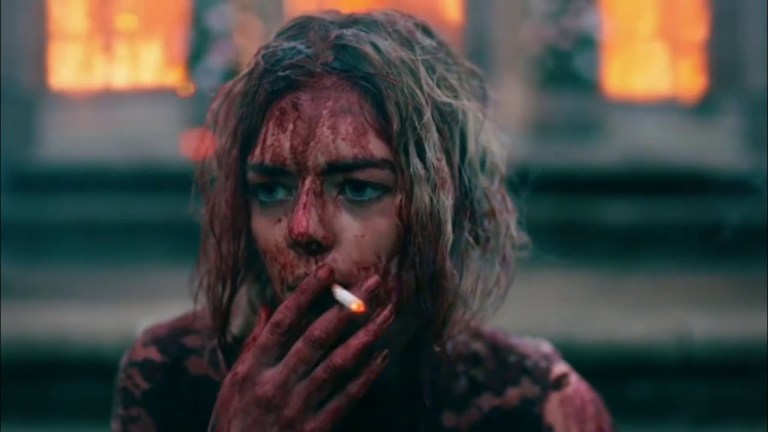
Iconic scream queen Samara Weaving stars in this movie that features one of the most satisfying “good for her” moments in horror. She plays Grace, who has just married into the wealthy Le Domas family at their sprawling estate. After her picturesque wedding, the bride is summoned for a game-playing tradition that every new member of the family must partake in. It seems trivial and innocent at first, she has to draw a card to determine what game will be played. When she draws “hide-and-seek,” it all seems so harmless, but it’s the worst card she could have drawn. The family is going to spend all night hunting her down, with the intention of sacrificing her by dawn because of a deal a De Lomas ancestor made with the devil.
She Will (2021)
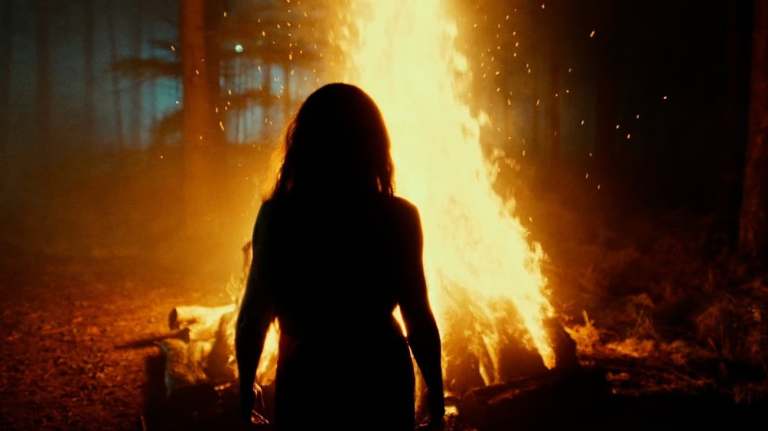
Veronica Ghent (Alice Crige), an aging child star recovering from a double mastectomy, is accompanied by her nurse Kota (Desi Hatoum) to a healing retreat in the Scottish countryside, on land where witches were once burned. There, she finds the power to enact vengeance within her dreams and take back control from her traumatic past. The film director who groomed and abused her when she was 13 has much to fear. She Will is an artsy horror gem with a dark, enchanting mood. The film channels centuries of female rage born from masculine tyranny, righting old wrongs in the process.
A Wounded Fawn (2022)
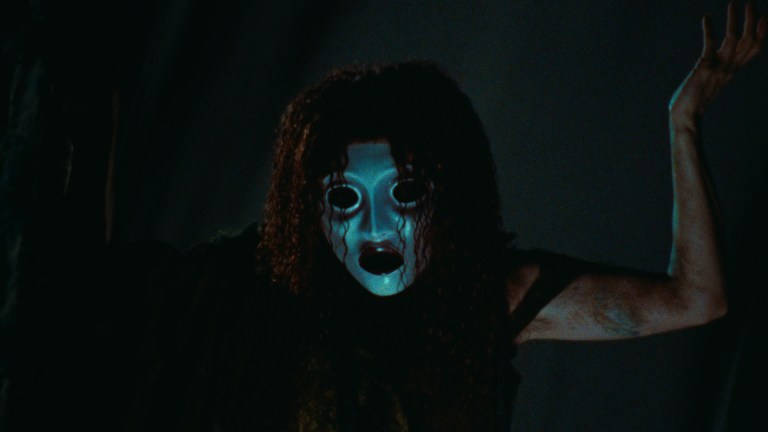
Meredith Tanning (Sarah Lind), a museum collector, is still healing from her last relationship, which was abusive. She has recently started dating the charming Bruce (Josh Ruben), who invites her on a weekend getaway to his isolated house in the woods. When she notices a famous sculpture of The Erinyes, he tells her it’s a replica, but she knows better, so she starts sensing that Bruce isn’t who he portrays to be. She isn’t wrong—he’s a serial killer who targets women and she’s his next target. Luckily, The Erinyes (aka The Furies), goddesses of vengeance and retribution in ancient Greek mythology who punish men for committing evil offenses against the natural order, are on her side. One of their favorite forms of punishment is driving men insane. Shot on 16mm, A Wounded Fawn is one the most unique and visually compelling horror experiences. Lovers of arthouse cinema, surrealism, and giallo flicks will love the film.
Fresh (2022)

Noa (Daisy Edgar-Jones) is exhausted by the horrors and tediousness that come with straight online dating. When she meets Steve (Sebastian Stan) at the grocery store, the handsome and charming guy makes her think she may just find a perfect man after all. After several dates, she accepts his invitation for a romantic weekend getaway at his cottage. Things go wrong when she discovers his “unusual appetites.” Fresh shows us the power and self-sufficiency of women when it comes to determining their own fates.
Watcher (2022)
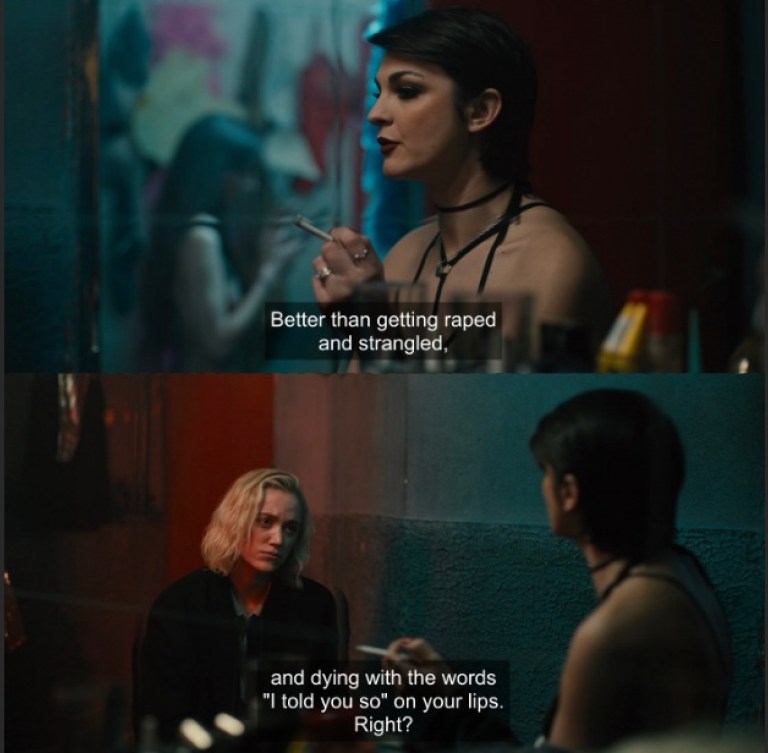
Watcher is an atmospheric feminist horror movie in the likes of Hitchcock, written and directed by the brilliant Chloe Okuno in her feature debut. This cathartic portrayal of feminine rage is guaranteed to become a classic. Maika Monroe gives her most powerful performance to date as Julia, an American woman who has just moved to Bucharest with her Romanian-American husband Francis (Karl Glusman). She’s left alone the majority of the time, while Francis works long hours. One day, the former actress notices a mysterious man looking at her through the window from his apartment across the street. She tries to shake it off, but it becomes more unsettling as it happens more often, and as she sets out to explore her new city, she becomes certain that someone is stalking her. Meanwhile, a serial killer named “The Spider” is decapitating young women in the area, and her fears are dismissed by the police—and her own husband. Watcher captures the universal female experience of not being believed and having your very valid fears minimized by men. It depicts that constant fear of danger we must carry because patriarchal society structures make it possible: “Let’s just hope you’ll never find out. The best outcome might be having to live with the uncertainty. Better than getting raped and strangled, and dying with the words ‘I told you so’ on your lips. Right?”
Immaculate (2024)
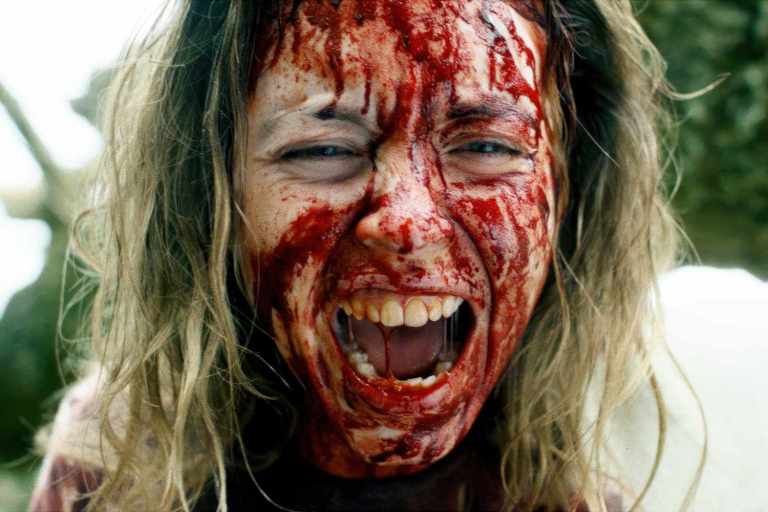
Immaculate has cemented itself among the best of nunsploitation films and has revived the subgenre. Sydney Sweeney, lead and producer, got Neon their highest opening weekend for any film to date. She was determined to bring this movie to life, which was scrapped after she auditioned for the project a decade prior—we can only be thankful for her efforts. Sweeney does not disappoint, and rightfully earns her final girl title. There’s a scene in which she lets out a gritted-teeth, infernal rage through one of the most memorable screams in horror. The story follows her character Cecilia, a young American woman devout of faith who joins a convent in the Italian countryside, where she plans to take her vows. What starts off as an idyllic new home, quickly turns into a place of horrors as she suspects something sinister is taking place. The film addresses bodily autonomy, the oppressive and patriarchal forces of the Church, and how organized religion serves to abuse and control women.
More horror movies about female rage…
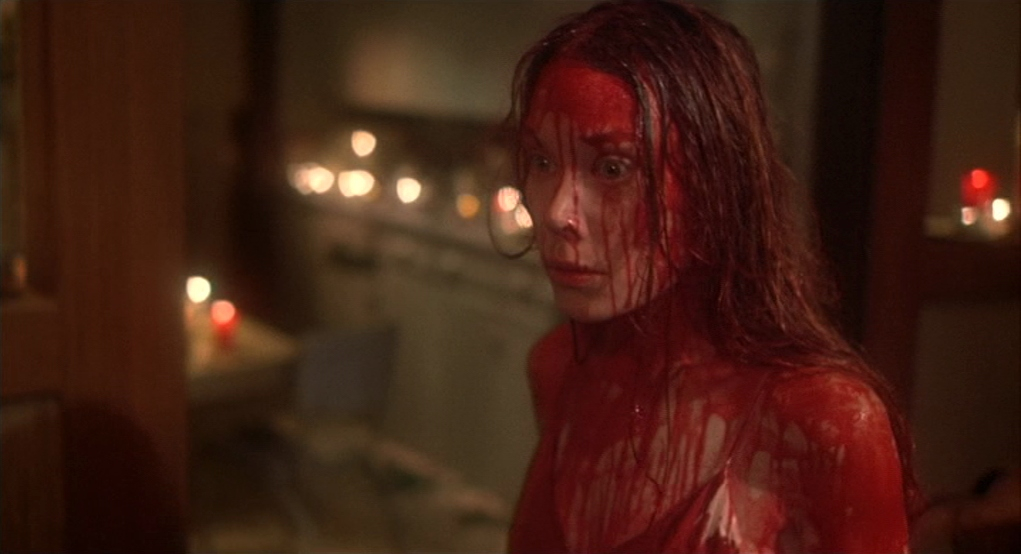
Carrie (1976) has become a symbol of female rage. Brian de Palma’s adaptation of Stephen King’s novel stars Sissy Spacek as the titular character, whose years of abuse and torment culminate one deadly prom night when she unleashes her telekinetic powers. There was a remake in 2002 starring Angela Bettis that differs a lot from the original and in some ways, is more loyal to the book. It’s definitely worth watching for a good dose of female rage.
Ms .45 (1981) this female revenge classic tells the story of Thana (Zoë Tamerlis), a seamstress in the fashion industry who is sexually assaulted twice in one day. After killing one of the men, she unleashes her nightly vengeance.
The Craft (1996) a new student is befriended by the outcasts of an LA Catholic prep school, who happen to be teen witches. They recruit her as the fourth member of their coven. The group of girls grow mad with power after conjuring up various spells and enacting revenge on those who have wronged them.
Eve’s Bayou (1997) This Southern gothic drama portrays Black girl rage. It follows the seemingly picture-perfect Batiste family in rural Louisiana. Set in 1962, the story is told through the eyes of the youngest daughter, Eve (Jurnee Smollett). Through her recollection of memories, family secrets and traumas are exposed.
The Rage: Carrie 2 (1999) this forgotten sequel follows Rachel Lang (Emily Bergl) as she decides to get back at the guilty parties responsible for driving her best friend to suicide, after one of them slept with her under false pretenses.
A Girl Walks Home Alone at Night (2014) this Iranian arthouse movie is an unconventional love story about a lonely vampire vigilante who hunts down men who hurt women in the fictional ghost-town of Bad City. The protagonist channels feminist rage.
Gone Girl (2014) is based on Gillian Flynn’s extraordinary novel of the same name. Rosamund Pike stars as Amy Dunne, a woman who goes missing on her fifth wedding anniversary. Her husband quickly becomes suspect number one. Amy’s legendary “cool girl” monologue perfectly encapsulates an all too well known simmering rage felt by all women.
Raw (2016) this French film is written and directed by the talented Julia Ducournau. It follows a freshman vegetarian, who after being forced to consume raw meat during a hazing ritual at her veterinary school, develops a desire for human flesh. Raw expresses female pleasure, power, and sexual awakening.
M.F.A. (2017) after confronting her rapist, a fine arts graduate student emerges as a vigilante who sets out to hunt men who got away with hurting women on her college campus.
The Nightingale (2018) a period female revenge horror film set in Tasmania 1825 and directed by The Babadook’s Jennifer Kent. Aisling Franciosis stars as Clare, a servant who is raped by a British Liutenant and is forced to watch as he murders her family. Billy (Baykali Ganambarr), an Aboriginal man with his own motives for revenge, accompanies her on her quest for vengeance.
The Perfection (2018) what starts out as a seemingly rivalry story about two prodigy cellists, turns into a story about female rage that explores something much deeper.
Suspiria (2018) a haunting and beautiful reimagining of Dario Argento’s classic film. An American student encounters a coven of witches at her new dance academy. Sound familiar? You’re in for a completely unexpected ride. The film differs so much from its predecessor. The film explores trauma, female rage and sexuality, unprocessed emotions, and the perversion of power.
The Wind (2018) this Western gothic horror follows Lizzy (Caitlin Gerard), a resourceful and isolated plains-woman living in the 19th-century American frontier, who encounters a sinister presence spawned from the untamed land. The movie explores female rage, agency, and revenge.
La Llorona (2019) an aging Guatemalan war criminal’s family becomes haunted by the sound of a weeping woman. The former general must face his sin of the brutal genocide he committed against the Kaqchikel people, an indigenous Mayan group. The film is part of the Criterion Collection.
The Other Lamb (2019) Selah (Raffey Cassidy) has lived her whole life cloistered and cut off from society. The young girl has been raised in an all-female cult led by a man, Shepard (Michiel Huisman), a controlling and self-proclaimed messiah. When she begins questioning everything she’s ever been taught, he becomes increasingly dangerous.
Black Christmas (2019) this reimagining of the 1974 classic focuses on a sorority who finds themselves fighting off the evil forces of a sinister fraternity. The movie highlights male toxicity, rape culture, and violence against women on college campuses.
Violation (2020) explores suppressed rage and how women are gaslit after an assault, even by those closest to them. The story centers around a woman who enacts justified revenge after being attacked by her brother-in-law
Promising Young Woman (2020) Carey Mulligan stars in this thriller about a woman who enacts revenge against predatory men and sets out to right some wrongs from the past.
Medusa (2021) a condemnation of purity culture and evangelical religious extremism. Mariana (Mari Oliveira) and her girlfriends praise Jesus during the day and prowl the streets at night for sinners as a vigilante girl gang. The movie also explores the internal misogyny that patriarchy conditions women to have.
Last Night in Soho (2021) an aspiring fashion designer living in present day London is mysteriously able to travel back to the 1960s. There, she encounters an aspiring singer with a dark and traumatic story who learned that fame always comes with a price.
Don’t Worry Darling (2022) was clearly inspired by The Stepford Wives. Florence Pugh stars as a young 1950s housewife who begins questioning her existence and the world around her when she notices bizarre behavior from the wives in her community.
Pearl (2022) tells the origin horror story of Pearl, the psychotic murderess of the first installment of Ti West’s X film series. Mia Goth stars as the titular character.
The Angry Black Girls and Her Monster (2023) this subversive reimagining of Mary Shelley’s Frankenstein follows Vicaria (Laya DeLeon), a brilliant teenager who has witnessed plenty of violence and police brutality in her life. After her brother is brutally murdered, she brings him back to life. The film uses the “mad scientist” trope to express Black girl rage, as well as explore racism, systemic racial failures, and the Black experience in America.
Further reading:
